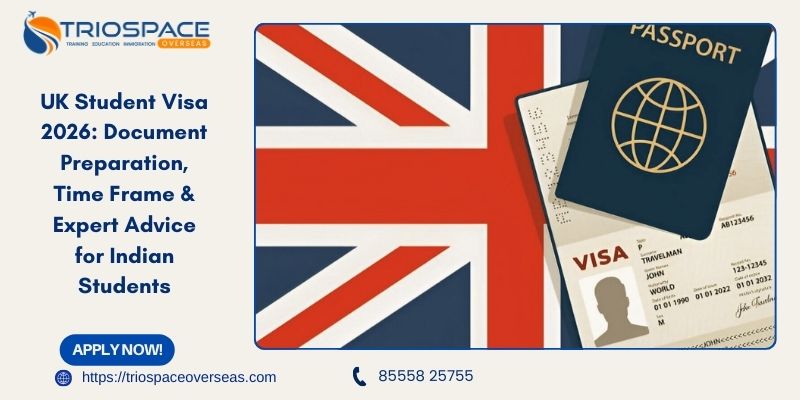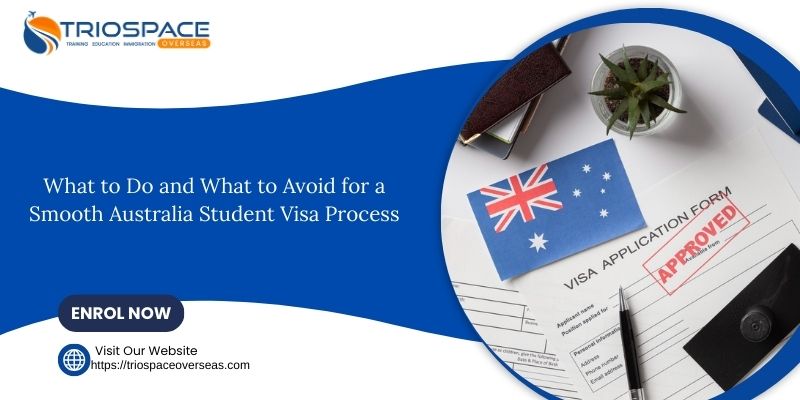
UK Student Visa Work Regulations: The Ultimate Guide for International Students
Table of Content
ToggleImagine this: You’ve just landed in the United Kingdom, buzzing with excitement for your studies. Alongside your textbooks and lectures, a thought pops into your mind “How can I earn some extra cash and gain valuable experience while I’m here?” It’s a common and totally valid question! Many international students choose to work part-time, not just to help with living costs but also to build skills, immerse themselves in British culture, and expand their professional network. Before diving into job opportunities, it’s important to understand UK Student Visa Work Regulations, which outline what kind of work you’re allowed to do, how many hours you can work during term time, and the types of jobs that are permitted.
However, the world of working in the UK as an international student comes with its own set of rules, specifically, strict visa regulations. Understanding these isn’t just about avoiding trouble; it’s about protecting your academic future and your stay in the UK.
This comprehensive guide is designed to be your trusted companion, diving deep into the UK Student visa work regulations, explaining everything in a clear, conversational, and problem-solving manner. We’ll break down complex legal jargon into easy-to-understand advice, making sure you feel confident and informed. Think of this as a friendly chat, guiding you through the ins and outs of working legally and successfully in the UK.
Understanding UK Student Visa Work Regulations & Your Legal Work Rights
Your Student visa (formerly Tier 4 General student visa) isn’t just a pass to study; it’s also your gateway to working legally in the UK. However, this permission comes with specific conditions. These conditions are not suggestions; they are legal requirements set by UK Visas and Immigration (UKVI). Abiding by them is essential for maintaining your immigration status and ensuring your academic journey progresses smoothly.
Generally, if you are pursuing a full-time degree-level course at a recognised UK higher education provider with a track record of compliance, your visa will likely permit you to work. But the devil, as they say, is in the details. The most crucial detail? How many hours you’re allowed to work.
The 20-Hour Rule Explained: Weekly Work Limits for International Students
This is perhaps the most significant regulation you’ll encounter, and it’s vital to get it right.
- For Degree-Level Studies (and Above): If you are enrolled in a full-time course at a university or college that leads to a degree (e.g., Bachelor’s, Master’s, PhD), you are generally permitted to work for a maximum of 20 hours per week during term time. This limit applies to both paid and unpaid work.
- For Below Degree-Level Studies: If your full-time course is below degree level (e.g., a foundation course or a pre-sessional English language programme), your work limit is typically 10 hours per week during term time.
What Does ‘Per Week’ Mean Under UK Student Visa Work Rules?
This is a common point of confusion. The UK Home Office defines a “week” as a seven-day period starting on a Monday and ending on a Sunday. It’s not a flexible average you can spread out over a month. For example, if you work 25 hours one week and 15 hours the next, you’ve still breached the rule in the first week.
Each Monday resets the clock, and you must ensure your total hours worked between Monday and Sunday do not exceed your visa’s limit. This includes any hours spent working for multiple employers; all work accumulates towards your weekly total.
Why UK Student Visa Work Restrictions Exist
The primary purpose of your Student visa is to study. The work restrictions are in place to ensure that your employment does not negatively impact your academic progress. The UKVI wants to be sure that your focus remains firmly on your education. Working excessively not only risks your visa but can also lead to academic struggles and increased stress.
Universities themselves often advise students to work fewer hours than the maximum allowed (e.g., 15 hours per week) to ensure a healthy study-life balance.
Term Time vs. Holidays: When Can You Work Full-Time Legally?
Understanding the difference between “term time” and “official vacation periods” is crucial, as it dictates when you can work more than your weekly limit.
What is Considered “Term Time” Under UK Student Visa Regulations?
“Term time” is not just when you’re attending classes. It’s broadly defined as any period during which you have academic responsibilities or expectations. This can include:
- Scheduled teaching weeks
- Examination periods
- Periods dedicated to coursework, assignments, or thesis writing
- Resit periods
Your university defines its official term dates, and these are the dates you must follow. It’s your responsibility to know these dates, as they are key to staying compliant. Your university is legally obliged to report any student who is found to be working illegally to the Home Office, so checking with your institution is non-negotiable.
Holiday Work Rights for Undergraduate and Postgraduate Students in the UK
For most undergraduate (Bachelor’s) and taught postgraduate (Master’s) students, there are clear “official vacation periods” throughout the academic year, such as Christmas, Easter, and the summer break. During these official vacation periods, you are generally permitted to work full-time. This means you are not bound by the 20-hour (or 10-hour) weekly limit.
However, even during these times, any full-time work must be on a fixed-term contract (i.e., with a specified end date), not a permanent full-time position. You’re still expected to be in the UK temporarily as a student.
PGR Students and UK Student Visa Work Regulations: What You Need to Know
If you are a Postgraduate Research (PGR) student, such as a PhD candidate, your situation is often different. Many PGR programmes are considered continuous throughout the calendar year. This means that, for visa purposes, you might be considered “in term time” all year round, even during periods when taught students are on holiday.
A.Continuous Study
The academic year for PGR students often runs from October 1st to September 30th, meaning all weeks are technically “term dates.”
B.No Official Summer Vacation
Unlike undergraduate and taught Master’s students, PGR students typically do not have a defined “official summer vacation” during which they can automatically switch to full-time work.
C.Agreed Breaks
While you can and should take holidays, these breaks must be agreed upon with your supervisor and do not automatically permit full-time work. Working more than 20 hours per week at any time during your PGR studies (unless it’s an assessed placement) could be a breach of your visa conditions.
It’s absolutely crucial for PGR students to clarify their university’s specific definition of “term time” and any permitted breaks for working purposes with their academic department or international student support team.
Dissertation Periods & Work Rules Under a UK Student Visa
For many postgraduate taught students, the summer period is dedicated to dissertation writing. Even if you are not attending formal classes, if you are actively working on your dissertation, this is often considered “term time.” This means the 20-hour weekly work limit still applies. It is extremely important to confirm with your Faculty or Department when there is an official summer break on your programme and when there is not. Getting this wrong can lead to serious consequences.
Prohibited Jobs Under UK Student Visa Work Regulations
While your Student visa opens doors to many part-time jobs, it firmly closes others. Engaging in prohibited work is a severe breach of your visa conditions and can lead to immediate and serious repercussions.
Why Self-Employment and Gig Work Are Not Allowed for Visa Holders
This is one of the most misunderstood and commonly breached rules. As an international student on a Student visa, you are strictly prohibited from being self-employed or engaging in any business activity. This includes:
A.Freelancing
Offering any professional services independently (e.g., graphic design, writing, coding) to clients, even if they are outside the UK.
B.Gig Economy Work
This includes popular platforms like Uber (as a driver), Deliveroo, Just Eat, or other courier/delivery services, as these typically classify you as a self-employed contractor, not an employee.
C.Starting Your Own Business
You cannot open or run any form of business, whether it’s a small online shop or a consulting firm.
D.Sole Trader or Partnership
You cannot register as a sole trader or enter into a business partnership.
Why is this prohibited? The UKVI requires students to be employees, where an employer is responsible for verifying your right to work and adhering to employment laws.
Self-employment places the responsibility of compliance directly on you, and it’s seen as a primary business activity, conflicting with your main purpose of study. Even if the earnings are small, or the work is sporadic, engaging in self-employment can jeopardise your visa.
Understanding Restrictions on Professional Sports & Entertainment Jobs
You cannot be employed as a professional sportsperson (this includes coaches) or as an entertainer (paid or unpaid). These specific categories are excluded from the types of work international students are permitted to undertake.
Why Full-Time Permanent Jobs Violate UK Student Visa Conditions
Your Student visa is for temporary stay for the purpose of study. Therefore, you are not allowed to fill a permanent, full-time vacancy. Any work you undertake must be temporary or part-time, aligning with your student status. Even if you work full-time during official vacation periods, it must be on a fixed-term contract.
Business Involvement Rules Under the UK Student Visa
While generally prohibited from engaging in business, there’s a specific nuance: you cannot work in a business in which you have an interest, unless you own less than 10% of the shares and you are working as an employee (not self-employed). This is a rare scenario for most students, but it highlights the strictness around business involvement.
Work Placements, Internships, and Volunteering Under UK Student Visa Rules
Sometimes, work isn’t just about earning money; it’s about gaining experience or contributing to the community. Your visa has specific rules for these too.
Approved Work Placements and Internships
Good news! If your degree programme requires you to undertake a work placement or internship as an integral and assessed part of your course, you may be permitted to work full-time during this placement, even if it falls within your university’s “term time.”
A.Key Conditions
The placement must be an official, assessed component of your degree programme and typically arranged or approved by your university. It also generally cannot exceed 50% of the total duration of your course (unless there’s a UK statutory requirement for a longer placement in your specific field, like some healthcare courses).
B.Does Not Count Towards Weekly Limit
Work undertaken as part of an official, assessed placement does not count towards your 20-hour (or 10-hour) weekly term-time limit. This means you could potentially work full-time on your placement AND up to your weekly limit in another part-time job during term time, provided both are permissible. However, always confirm this with your university’s international student support team, as university policies can sometimes be stricter.
The Legal Difference Between Unpaid Work and Genuine Volunteering
There’s a subtle but critical distinction here:
A.Unpaid Work
If you are performing a role that would typically be paid, but you are not receiving wages (e.g., an unpaid internship that is not an integral, assessed part of your course, or helping out a friend’s business for free), this counts towards your weekly maximum hours. The Home Office considers the nature of the activity, not just whether money changes hands.
B.Genuine Volunteering
This refers to activities where you are not filling a job role, are not paid (except for reasonable expenses), and are working for a registered charity, a voluntary organization, an associated fundraising body, or a statutory body. Crucially, genuine volunteering typically does not count towards your weekly maximum hours. The key is that it should be a truly voluntary activity, not a disguised form of employment.
Always be clear about the nature of any unpaid activity you undertake to ensure it doesn’t accidentally lead to a visa breach.
Consequences of Breaking UK Student Visa Work Regulations
Breaching your Student visa work conditions is a serious matter with potentially life-altering consequences. The UK Home Office takes these rules very seriously, and ignorance is not considered an excuse.
Immediate Risks: Visa Curtailment and Cancellation
If UKVI discovers you have worked more hours than permitted, or engaged in prohibited employment, the most immediate consequence is that your visa may be curtailed or cancelled. “Curtailment” means your visa’s validity period is cut short, requiring you to leave the UK much sooner than planned. In severe cases, your visa can be cancelled outright.
Deportation and Re-entry Ban: Long-Term Implications
Beyond visa curtailment, you could face deportation from the UK. Furthermore, breaching immigration rules can result in a re-entry ban, preventing you from returning to the UK for a specified period (e.g., 1 to 10 years). This ban can apply even to future visa applications for tourism or other purposes.
How Violating Work Rules Can Affect Your Graduate Route Visa
A breach of your Student visa conditions can severely impact your eligibility for future UK visa applications, including the popular Graduate Route visa. The Graduate Route allows international students who have successfully completed a UK degree to stay and work for two to three years.
However, a history of immigration breaches can lead to the refusal of such applications, making it much harder to pursue post-study work or long-term career goals in the UK. Any future UK immigration application will scrutinise your compliance history.
Employer and University Responsibilities in Monitoring Student Work
Working illegally is a criminal offense in the UK, both for the student and for the employer.
A.For the Student
You could face legal penalties, including fines or, in extreme cases, imprisonment. More commonly, the penalties revolve around immigration status (deportation, bans).
B.For the Employer
Employers who knowingly (or unknowingly, if they fail to conduct proper Right to Work checks) employ someone who does not have the right to work or who breaches their visa conditions can face significant civil penalties (fines of up to £20,000 per illegal worker) and even criminal charges.
C.University Obligations:
Your sponsoring university is legally obliged to report any student found to be in breach of their visa conditions to the Home Office. This could lead to your sponsorship being withdrawn, which in turn leads to visa curtailment.
Staying Compliant with UK Student Visa Work Rules: Tips for Success
The message is clear compliance is non-negotiable. It’s not just about avoiding fines it’s about safeguarding your entire academic and future professional journey in the UK. Every hour worked, and every job taken, must align with your visa conditions.
Practical Tips for Staying Compliant and Succeeding. Staying within the rules doesn’t have to be complicated. Here are some practical tips to help you navigate your work-study journey in the UK:
A.Always Check Your Visa and Biometric Residence Permit (BRP)
Your visa sticker (vignette in your passport) or your BRP card (and increasingly, your digital eVisa status) will explicitly state your working rights, including the maximum hours you are allowed. This is your primary source of truth.
B.Understand Your University’s Term Dates
Each university publishes its official term and vacation dates. Familiarize yourself with these, especially if you are a postgraduate student, as they define when your working hours are restricted. When in doubt, ask your academic department or the university’s international student support team.
C.Track Your Hours Meticulously
Keep a personal log of every hour you work, for every job, each week (Monday to Sunday). This simple habit can save you a lot of trouble. If you work two part-time jobs, ensure the combined hours do not exceed your limit.
D.Communicate with Your Employer
Be transparent with your employer about your student visa work restrictions. Responsible employers understand these rules and will help you stay compliant. They are also legally required to conduct ‘Right to Work’ checks.
E.Utilize University Career Services and International Student Advisors
Your university is your biggest ally. Their career services can help you find suitable, compliant jobs, and their international student advisors are experts on visa regulations.
Don’t hesitate to reach out! Additionally, for comprehensive guidance on UK Student visa work regulations and navigating your entire overseas education journey, organizations like Triospace Overseas can provide valuable insights and support from experienced professionals.
F.National Insurance Number (NIN)
Once you start working and earn above a certain threshold, you’ll need a National Insurance Number (NIN) to pay tax and National Insurance contributions. You can start working before you receive your NIN, but you should apply for it as soon as possible after starting work.
G.Right to Work Checks
Employers are legally required to check your “right to work” in the UK before you start a job. This typically involves showing your BRP or sharing your digital immigration status via a share code. This process helps ensure both you and your employer are compliant.
Conclusion: Empowering Your UK Student Journey
Working part-time in the UK can significantly enrich your international student experience, offering financial support, skill development, and cultural immersion. However, it is an area governed by strict rules that demand your careful attention.
By understanding the nuances of the 20-hour rule, the distinction between term time and vacations, and the types of prohibited employment, you empower yourself to navigate the system successfully.
Always remember that your academic pursuit is the primary reason for your Student visa. Any work you undertake should complement, not compromise, your studies. Stay informed, remain vigilant with your hours, and leverage the support systems available at your university.
By doing so, you can confidently earn while you learn, making the most of every opportunity the UK has to offer, without risking your cherished student status. Your success in the UK is a journey of balance, compliance, and informed choices.
Frequently Asked Questions (FAQs) about UK Student Visa Work Regulations
Here are some real-world questions international students often have about UK Student visa work regulations:
Q1: What is the main rule regarding working hours under UK Student visa work regulations?
A1: The main rule is that if you’re studying a degree-level course or above, you can work a maximum of 20 hours per week during term time. If your course is below degree level, it’s usually 10 hours per week. During official university vacation periods, you can often work full-time.
Q2: Does “per week” mean I can average my hours over a month when following UK Student visa work regulations?
A2: No, “per week” is a strict period from Monday to Sunday. You cannot average your hours. You must not exceed your weekly limit (e.g., 20 or 10 hours) in any single Monday-to-Sunday period, even if you work fewer hours in other weeks.
Q3: Can I work for a gig economy company like Uber Eats or Deliveroo with my UK Student visa?
A3: No. Under UK Student visa work regulations, you are strictly prohibited from being self-employed. Gig economy roles typically classify you as self-employed, making them illegal for international students on a Student visa.
Q4: I am a PhD student. Do the same UK Student visa work regulations apply to me for term time and holidays?
A4: For PhD (Postgraduate Research) students, “term time” is often considered year-round. This means you typically remain subject to the 20-hour weekly limit throughout the year, even during periods when taught students have vacations. Any breaks for full-time work must be formally agreed upon with your supervisor and university. Always confirm your university’s specific policy.
Q5: What happens if I accidentally work more hours than allowed by my UK Student visa work regulations?
A5: Accidentally or intentionally working more hours than permitted is a serious breach of your visa conditions. It can lead to your visa being curtailed (cut short), deportation, and potentially a ban on future re-entry to the UK. Your university is also required to report such breaches to the Home Office.
Q6: Are unpaid internships or volunteering allowed under UK Student visa work regulations?
A6: Unpaid internships (unless they are an integral and assessed part of your course, like a formal work placement) generally count towards your weekly working hour limit because they are typically roles that would otherwise be paid. Genuine volunteering for registered charities usually does not count towards your limit, but it’s important to understand the distinction to avoid breaching regulations.
Q7: Do I need a National Insurance Number (NIN) to start working under UK Student visa work regulations?
A7: You will need a National Insurance Number (NIN) to pay tax and National Insurance contributions once you start earning above certain thresholds. You can start working before you receive your NIN, but you should apply for it as soon as possible after starting employment. Your employer will need to see your proof of right to work before you begin.



















